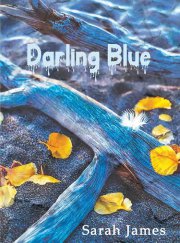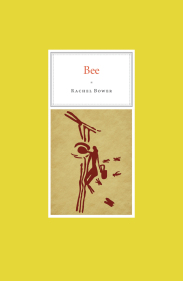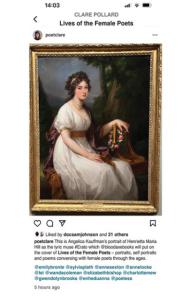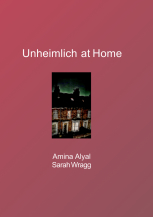
2017
JANUARY CONTRIBUTORS
Sudeep Adhikari, Chrissy Banks, Michael Brosnan, David Cooke,
Catherine Edmunds, Devon Marsh, Beth McDonough, Todd Mercer,
Maren O. Mitchell, Carla Schwartz, Pat Tomkins.
SUDEEP ADHIKARI
Few Ways to Die Like Leonard Cohen
There are few ways to die like Leonard Cohen. For example,
naming your woman Marianne and driving her more than 2000 miles
from Athens to Oslo in a rented car. That would be so
Cohen-ly romantic, falling somewhere between
some fairytale love-stories, and Diotima's ideas on platonic love.
Or you can stay in Chelsea Hotel on 34th street,
and live the seedy tales of Sid Vicious and Andy Warhol
And if you are really lucky, you can jam with Jimi Hendrix
and get a blowjob from the inimitable Janis Joplin.
Or you can write a song about your friend's wife
and immortalize her in a Suzanne way. Or you can try
to bewitch a blue-eyed nymph from Deutschland, or write your
first novel to be read by Lou Reed.
Or you can be a fervent Jew, strolling anxiously on the ghettos
of Montreal; your head fogged with aches, amour and
generically dexamphetamine. Or go to a Zen monastery in California,
where wearing a robe may help to loosen some knots, but
is not going to pacify your boners and saudade.
Ain't no cure for love, and so is for this anxiety called Life.
Or you can stay by the side the of your son in hospital, who is
most possibly going to die, and read him Bible till he comes out of his
coma to ask you to stop. Or you can be a not-so-bad Zen master,
finding some solace between the space of Tibetan Book of the Dead
and Torah; in a mystical way, of course. Even magical.
Or you can get ripped off of all your savings when your are old, tired and weary
but you forgive everyone, wear a nice suit, and go to India or some
far eastern country to find nothing. Or you can put on a silent fight
against never-ending swirls of black bile, yet be a "baffled king composing
hallelujah" to mend thousands broken souls.
There are many ways to die like Leonard Cohen, and dying with
your hard-on is certainly not one of them.
Sudeep Adhikari is a structural engineer/Lecturer from Kathmandu, Nepal. His poetry has found a place in many online/print literary journals, the most recent being Red Fez , Kyoto, Your One Phone Call, Jawline Review, Anti-Heroin Chic, Yellow Mama, Fauna Quarterly, Beatnik Cowboys, After The Pause and Poetry Pacific.
Back to POETRY ARCHIVE
CHRISSY BANKS
The Death of Li Po
He’s ten parts love, ten parts
poetry. The rest is wine.
He’s tried his words on the full moon,
but there’s no wooing her.
She smiles to herself, her cool beauty
exposed to every man.
Fool, he’ll never possess her,
but a drunken romantic is doomed
to try to the end.
Tonight, he pushes his boat out on the river, reaches out
to stroke her face as it shimmers,
dodging his touch. Further and further he leans.
Face down in the water,
what use to him now are poetry and love?
But he expires, words on his tongue,
the moon in his arms.
Chrissy Banks lives in Exeter. Her poems have been published widely in magazines and anthologies, most recently in Orbis, South, the North, the Rialto and Ink, Sweat and Tears as well as anthologies The Captain’s Table: Seventy Poets for Bob Dylan at Seventy (Seren) and The Listening Walk. A collection, Days of Fire and Flood, was published by original plus in 2005. She has recently written poems for the Trios project with photographers, poets and painters, forming a touring exhibition in 2017. Her website is www.chrissybankspoetry.com
Back to POETRY ARCHIVE
MICHAEL BROSNAN
Trout Fishing
Its brook-slick skin -
a little copper, a little quartz,
flecked with the pink and gray of granite,
mud, the soft rust of dead leaves,
the suggestion of shifting clouds
in the alder shadows
among mute stones
and the slow-tumbling detritus
of the river bottom.
Tonight, with a little luck,
we’ll eat it with the russets
you’ve dug from the garden —
a simple meal, as we live
now with the knowledge
of an ancient thing:
in this upriver constancy,
love wildly contained.
Michael Brosnan’s poetry has appeared in various literary journals, including Confrontation, Borderlands, Prairie Schooner, Barrow Street, New Letters, The Moth, Into the Teeth of the Wind, Rattle, and Ibbetson Street. In his day job, he works as the editor of Independent School, an award-winning quarterly magazine on precollegiate education.
Back to POETRY ARCHIVE
DAVID COOKE
The Robin
Try as I might to ignore it, there is no way
round it: grass is up to its tricks again.
So I hump out the Flymo, its blade clogged
in old growth, and cut a tentative swathe.
From the lowest bough of the apple tree
the robin sees me coming, appraising
my skill with a flex and the way one flick
makes it ripple when I cast it aside.
Eyeball to eyeball he keeps his station,
maybe tame or maybe cocky, knowing
my patch is his domain. Inches apart,
I’m Montale and he’s like the hoopoe –
until I’m back fifty years, bird-spotting
through undergrowth that rips my hands and legs
– like a natural barbed wire fencing –
around that derelict house in Johnsforth
whose occupants died or else migrated
to England or the States, leaving behind
a sanctuary for the warblers, wrens
and robins I once described in notebooks.
Today I’ve cousins who live in houses,
picket-fenced like those in Stepford.
If neighbours complain, the unruly lawns
get mown. You’ll find your bill in the mailbox.
David Cooke's poems have been published in The UK, Ireland and beyond. His most recent collection, A Murmuration, was favourably reviewed in The TLS, Poetry Salzburg Review, The PBS Bulletin, London Grip and elsewhere. In 2015 he founded and now co-edits the High Window Journal and Press.
Back to POETRY ARCHIVE
CATHERINE EDMUNDS
The Night of the Paintings
Five in the morning, and Mary’s ghost is riding the subway in Kiev,
baby Jesus on her knee. Three angels are in attendance,
playing violins and lutes to soothe the child to sleep.
On a tram, a satyr is discussing philosophy,
but four naked nymphs are determined to make him dance.
The satyr stays glued to the plastic seat, he’s hairy and muscular,
and the nymphs want him, his animal smell is far stronger
than the stench of dirty tram. None of them notice Judith kicking
Holofernes’ head like a football down a dark alleyway.
This is the night when the artworks are allowed
to escape their canvases and roam the city on the Dnieper River –
they could go anywhere, but they’ve discovered Kiev’s
highly developed system of public transport.
5:30, the city is waking. Jesus wants to suckle
but they have to get back to their canvasses. He starts to cry.
The angel with the lute strums hopefully, but a string snaps
and catches baby Jesus in the eye – he screeches.
Mary raises her hand to slap him, and this is precisely the pose
in which the artist caught her, hand raised as if to caress,
baby Jesus’ face screwed up in the manner of all Renaissance babies
painted by artists who’ve never fathered one.
The satyr now is fully aroused, to the nymphs’ delight,
they pull him from his seat and his sweaty backside peels away
from the dirty plastic. The tram judders and they all tumble,
grabbing at anything. Judith kicks Holofernes’ head at the tram
and it hits the window – his eyes stare in and his grimace splatters.
The nymphs scream. The satyr goes limp, but that’s how he has to be
for the purposes of an artwork suitable to be viewed by wives and servants.
Judith retrieves Holofernes and tucks him under her arm.
She skips back to the gallery, occasionally throwing the head
up in the air and catching it, doing tricks, spinning round.
They’re nearly back when he slips out of her hands and lands on the pavement –
she curses, and leans down to pick him up, a snarl on her lips,
and thus she is also captured.
The waiting artists exhale like a moan of doves
as all the pictures in all the world return to their frames.
They remember the time the Mona Lisa went to a comedy club
and heard a genuinely funny joke and guffawed—
they had to arrange for her to be stolen as she was not fit
for public view until she had calmed down a bit.
No such disasters tonight.
The Slurp-suck of closure
Trees at night, smoke drifting,
you get yourself into the mood, but then I show you
a man, pink face, nappy pin stuck through his nose.
We wait at the lights, only fighting when moving.
You try to distract me with level crossings, dirty yards
you whisper the words, ‘A Small Good Thing’
and I laugh, I counter with hot-dog vans,
corners running with piss.
You go all poetic. Boys, blackened with dust,
the sound of the bath filling softly, like a phone in bed;
the space between our breaths.
You’ll be crying in a moment, caught in the tightness,
the beat of what remains unsaid,
we could be driving home, or dying
and Fido could be just another dog in the rain.
I can hear you chew,
I have fantasised about your death.
Catherine Edmunds was educated at Dartington College of Arts, and Goldsmith’s College, London. Published works include a poetry collection, four novels and a Holocaust memoir. Catherine has twice been nominated for a Pushcart Prize, and has written for the Frogmore Papers, The Binnacle, Butchers’ Dog, and other literary journals. www.freewebs.com/catherineedmunds/
Back to POETRY ARCHIVE
DEVON MARSH
New
List
In the tool room I start a new list.
Not for a project we will build together,
rather items I might use without the thrill
I felt at twelve. Planes to shape
boards a sawyer has not unpacked;
patches for leaks un-sprung;
conductors, their current still within
the sun. List, he said, the tools you can
take, the ones you want. And the supplies
in neat rows labelled in bold marker,
indelible, handprint speaking in his voice.
I touch boxes of nails half empty,
unseen fasteners holding the world together
all around me. Not wanting to want,
I write ‘nails’ under Things to Take
with my father’s blessing.
Devon Marsh served as a naval aviator and now works as a risk manager for Wells Fargo Bank. Father of three and husband of a critical care nurse, he writes in the interstices between soccer games and business meetings.
Back to POETRY ARCHIVE
BETH MCDONOUGH
Viral
Papers forewarn, print out threatened death.
Illness ravages blackthorn. Prepared,
we thread already emptied ways to reach
the place of our barbed copse.
Near leafless. Lichen-beardy, all strung out, it drips
jewelled abundance:
John Clare’s jetty sloes.
Come next November there may be
none, or simply corpsing shrivel twigs,
perhaps unripened splits; but now
we pluck softening perfect beads,
bowl autumn’s last kind act.
Whatever changes, transfers, fails – today
riches for jelly, for gin.
I needle these gifts by
my kitchen sink,
as I cradle into his call. Over crackles he forms
his hard-won gifts of words. Of joy.
All those sore-mouth puckers, those bittered tastes
round purple, diffuse with this leaching light. I stand
on just firmed ground between sops
make jelly, make gin
accept this handover season
for every dark to come.
Watering down a recipe
Ingredients:
drain Rannoch
snowmelt.
Slurpdown brown through peathags.
Method:
Now, combine in burns.
Tumble
downhill. Collect
in the Braan
in the Earn
in the Isla and the Dochart.
Mix well. You may
wish
to let it rest in lochs.
At this stage, note
Perth’s new-made
liason with the North Sea tide.
Allow twenty miles of
ebb and flow –
become briny for Dundee.
Sluice a rip below that
Lifeboat pier,
eddy by the Ferry harbour.
On the beach with every
high and low –
repeat, repeat and make
that seabed pattern –
one hard rippled sandbank, smooth, a
dip, then soft
undermining
squish – all this mystery.
Set in the memory of
this firth.
Beth McDonough studied Silversmithing at GSA, completing her M.Litt at Dundee University. Writer in Residence at DCA 2014-16, her poetry appears in Gutter, The Interpreter’s House and Antiphon and elsewhere; she reviews in DURA. Handfast (with Ruth Aylett, May 2016) charts family experiences – Aylett’s of dementia and McDonough’s of autism.
Back to POETRY ARCHIVE
TODD MERCER
The Sexton Isn’t Ready to Retire
The call comes in, the duty notice. The Sexton fires up the backhoe
digs another rectangle within sight of the plot they’re saving for him.
He’d planned to hand-shovel the rest of his work years, but the county
sprung for good equipment, finally. Usually he doesn’t know
the people he’s burying. That’s better. He’s set in a few old friends.
Once a former lover—that was harder. Be careful what you wish for
in your angriest moments. The Sexton worries, wonders
if he’s deficient or forgiven. What are the odds of an afterlife?
The Sexton sets the concrete vault in place. He lays a tarp overtop
of mounded dirt—some mourners don’t want to see it.
Back after the service to fill in. The Sexton takes the tail end
of the day to heart. He continues with a course of antibiotics
and hocks gunk from his one good lung, head hung
over a bowl of steaming vapor. With the new machine
and modern medicine the Sexton aims to be here a year longer
than his critics predict. Maybe he’ll find a method
of never dying. Maybe he’ll let himself off the hook.
And again, be careful what you wish for.
Todd Mercer won the Dyer-Ives Kent County Prize for Poetry (2016), the National Writers Series Poetry Prize (2016) and the Grand Rapids Festival Flash Fiction Award (2015). His digital chapbook, Life-wish Maintenance, appeared at Right Hand Pointing. Mercer's poetry and fiction appear in 100 Word Story, EXPOUND, Literary Orphans and Split Lip Magazine.
Back to POETRY ARCHIVE
MAREN O. MITCHELL
B, Unabashedly Buxom,
is the kernel of life around
which we build, pearl-like,
layer upon layer,
without which we would not be.
Alphabeta, the first two Greek letters,
created the word for all our letters.
Except for “A,” it is the best grade
to earn, barring the Middle Ages
forehead branding of blasphemers.
When fixations strike, were bonnets
still in fashion, attention getting,
B would adorn.
It is the sound of fertilization
(although less and less), buzzing
from blossom to blossom, hind legs
loaded with gold, the sound that feeds us.
J, Descended from I,
is the walk we choose
to heighten the sense
of living in our skin,
to thumb our nose
at the law and fate
simultaneously;
on the list of inherent
city dangers.
The bird that has solved
the nanny, food hunt
and never-getting-out problems.
From childhood on into
extended childhood,
the hook from which we hang
our seasonal empty
stocking of expectations—
whether just junk or justified,
or a jazzed up combination.
Maren O. Mitchell’s poems have appeared in The Crafty Poet II, Hotel Amerika, Chiron Review, Iodine Poetry Journal, Appalachian Heritage, The South Carolina Review, Southern Humanities Review, Appalachian Journal, The Lake (UK), Town Creek Poetry, such anthologies as The World Is Charged: Poetic Engagements with Gerard Manley Hopkins and The Southern Poetry Anthologies, V: Georgia & VII: North Carolina and elsewhere. Work is forthcoming in Poetry East, Tar River Poetry and Poem. Her nonfiction book is Beat Chronic Pain, An Insider’s Guide (Line of Sight Press, 2012). She lives with her husband in the mountains of north Georgia, US.
Back to POETRY ARCHIVE
CARLA SCHWARTZ
My Netherland
I had planned
a brief, stealth planting,
in and out,
a bee in the flower’s mouth.
My hair, wet
under cap,
henna drooling down my cheek,
hoping not to meet anyone.
My neighbor walks over,
asks again
about my plans for my yard,
the undergrowth,
where the trees came down.
Mint, raspberries, fruit trees —
The garden of my dreams
streams from my mouth
over the wild mustard,
poison ivy, and bittersweet
that almost have me beat.
I say thank you.
She answers, regulations,
wild animals.
Later, after the digging, the yanking,
the spray of soil in my hair,
in the shower,
I feel an itch, mid-back,
where I cannot reach.
In the mirror,
a very small neighbor,
merged inseparably
with my skin,
a tick,
a mustard seed
of a tick.
Combination
Just before I last saw you, when I arrived at the pond,
I noticed your bicycle locked to the rack.
The combination, like your touch, I’d never forget.
I worked the lock deftly, and bagged it.
Not even the birds noticed,
but my blood bubbled, my heart raced.
Four numbers retained is no fair trade
for what you tore from my chest,
but I hurried off with my haul in shame,
locked it deep in the dark of my trunk.
Carla Schwartz’s poems have appeared in Aurorean, ArLiJo, Common Ground, Cactus Heart, Fourth River, Fulcrum, Mom Egg, Switched-on Gutenberg, Poetry Quarterly, Naugatuck River, Solstice, and Ibbetson Street. Her book, Mother, One More Thing is available on Amazon.com. Her CB99videos youtube channel has had 300,000+ views. Learn more at carlapoet.com, or her blog, wakewiththesun.blogspot.com.
Back to POETRY ARCHIVE
PAT TOMKINS
Mythless
The name, borrowed from the Greek alloy
of leopard and camel, suggests myth:
a hybrid as improbable as a sphinx.
But there’s no corresponding history:
No tales of adventures like the Centaurs.
No special talents or abilities
like the basilisk and manticore.
Where’s the mortal eager for godlike powers?
Or criminal turned into animal?
What about heroic deeds, a fatal sin,
accounts of seduction or revenge?
No wonder it’s hard to find the giraffe,
big but lacking bright lights,
outshone by the lion and the scorpion.
Lost among the zodiac,
the camelopardalis needs a myth.
A shy guest who joined the party late:
To lack imagination is a dismal fate.
Australian Immigrant
Tall and lithe as a modern dancer
invasive species in California
Supplier of food for cuddly koala bears
our only marsupial: the rat-tail possum
Elegant and ornamental landscape feature
an overgrown fire hazard in dry areas
Peeling trunk makes identification easy
long strips of bark and capsules litter the ground
Source of beneficial oil
after rain, smells like cat pee
Grows fast to more than 100 feet
brittle wood, useless for construction
So common, it’s a street in San Francisco
a very frequently misspelled address
Pat Tompkins is an editor in the San Francisco Bay Area. Her poems have appeared in Modern Haiku, KYSO Flash, the Worcester Journal, and other publications. “Mythless” first published in Astropoetica, 2008.
Back to POETRY ARCHIVE



